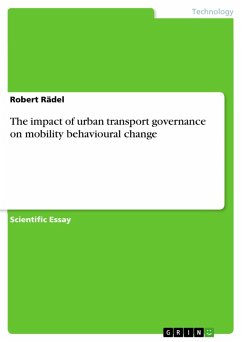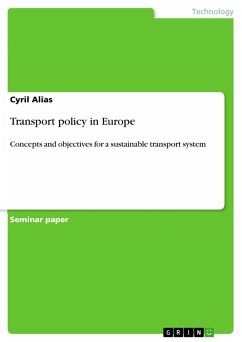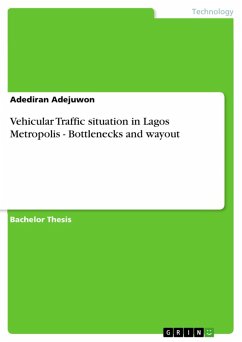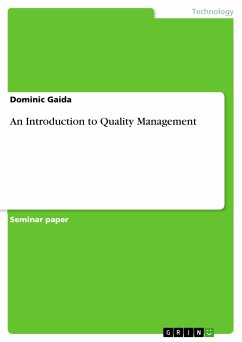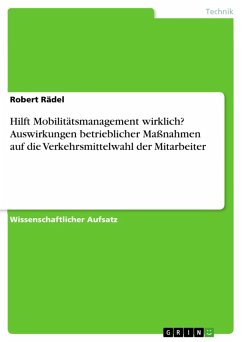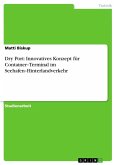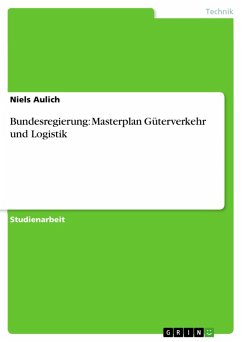Scientific Essay from the year 2013 in the subject Transportation Science & Technology, Humboldt-University of Berlin (Berlin Graduate School of Social Sciences), language: English, abstract: Political decision makers often shy away from implementing policies that could affect mobility behavioural freedom. In order to support or replace a cost-intensive "material" measure, mobility management campaigns addressing subjective determinants are realized, to set psychological incentives for behavioural change. However, whereas infrastructural or supply activities are well investigated, the causal effects of persuasive measures on the mobility behaviour are obscure. Moreover, the interrelations of indirectly effecting political factors and socio-spatial inequalities are a "black box". So the central research question should be to identify causal effects in the urban governance arrangements on the mobility behaviour of different social groups and in certain city districts. The state of research in transport politics or policy is whether moderate or related to other topics like demography, economy, social politics or planning. However, a new developed concept of "mobility culture" on urban level opens research impulses, which can be linked to the regional governance analyses of political science. The presented methodological approach is to investigate with different methods on two levels. On the city level it could try to identify decisive governance factors on mobility behavioural change, by applying a combined expert interview and questionnaire with a statistical analyses of three household mobility surveys in the last 10 years. Parallel and on the level of single policies it could conduct its own panel questionnaire with control groups, complemented by guideline-oriented qualitative interviews. The final objective is to produce general statements on the effects and interrelations of "citizen-oriented" urban transport governance.
Dieser Download kann aus rechtlichen Gründen nur mit Rechnungsadresse in A, B, BG, CY, CZ, D, DK, EW, E, FIN, F, GR, HR, H, IRL, I, LT, L, LR, M, NL, PL, P, R, S, SLO, SK ausgeliefert werden.

